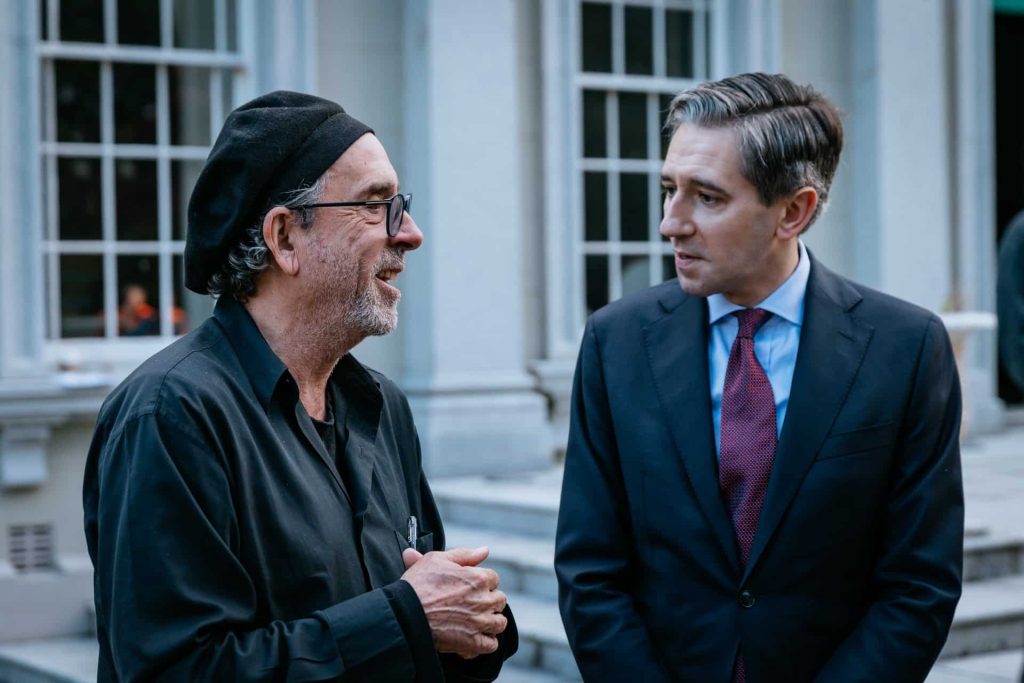
![]()
An Taoiseach Simon Harris got a taste of Hollywood when visited the set of Netflix’s Wednesday, the largest production to ever film in Ireland, meeting legendary director Tim Burton.
Joined by Minister for Tourism, Culture, Arts, Gaeltacht, Sport and Media, Catherine Martin and Désirée Finnegan, Chief Executive of Fís Éireann/Screen Ireland at Ashford Studio in Wicklow, Taoiseach Simon Harris said, “It was a pleasure to visit Netflix’s Wednesday set to see the award-winning team in action and meet acclaimed director and executive producer Tim Burton. I'm delighted to see Ireland continues to be chosen as a location to film series and movies which supports our economy, creates jobs, showcases our creative talents and promotes our country on a global stage."
Wednesday, Season 2 is just one of many Netflix productions made in Ireland recently such as The Siege of Jadotville, The Wonder, Bodkin, and Vikings: Valhalla. Netflix is also planning to produce Marian Keyes Grown Ups and Lisa McGee’s How to Get to Heaven from Belfast series in Ireland.
Burton is famous for his gothic horror and fantasy films including Beetlejuice and the revival of Batman. He has received numerous accolades including an Emmy Award, and a Golden Globe Award as well as nominations for two Academy Awards and three BAFTA Awards.
Wednesday is the most popular English-language TV series on Netflix, amassing 252.10 million views of Season One. The series has spent 20 weeks on the global top 10 and the top 10 in 93 countries.
The first season of Wednesday, starring Jenna Ortega in the title role, alongside Catherine Zeta-Jones, Luis Guzman, Gwendoline Christie and Christina Ricci, was a sleuthing, supernaturally infused mystery charting Wednesday Addams' years as a student at Nevermore Academy.

Picture: Screen Ireland
During the visit An Taoiseach highlighted recent improvements to the film and television tax incentive, Section 481. Last year’s Budget announcements increased the tax incentive’s cap on eligible expenditure from €70 million to €125 million per project, and further extended the credit to 2028. These amendments have been welcomed by the Irish screen industry as encouraging further investment into the Irish economy on jobs, goods and services during production.